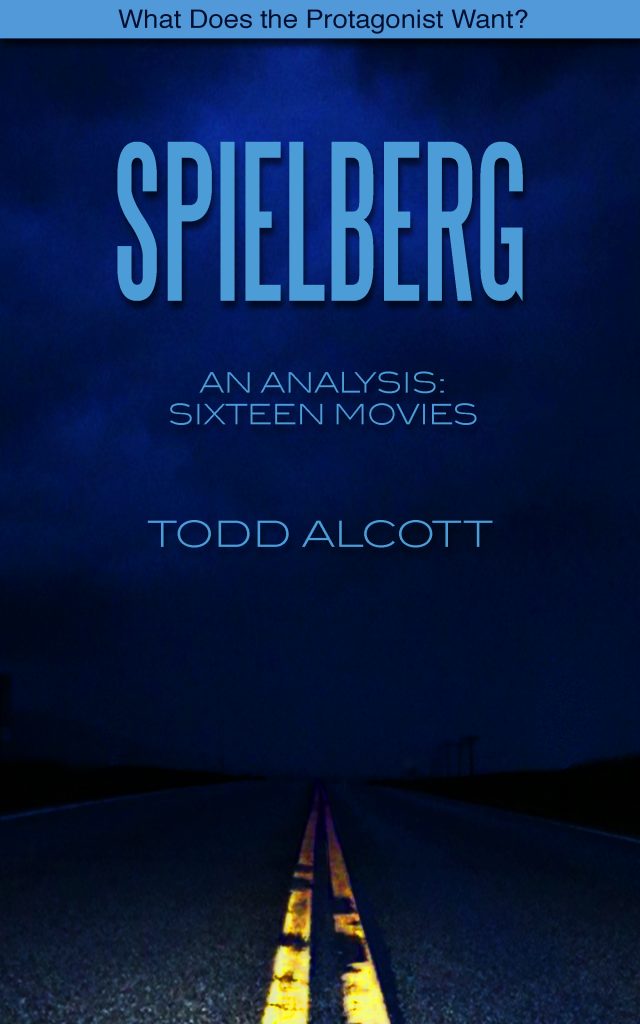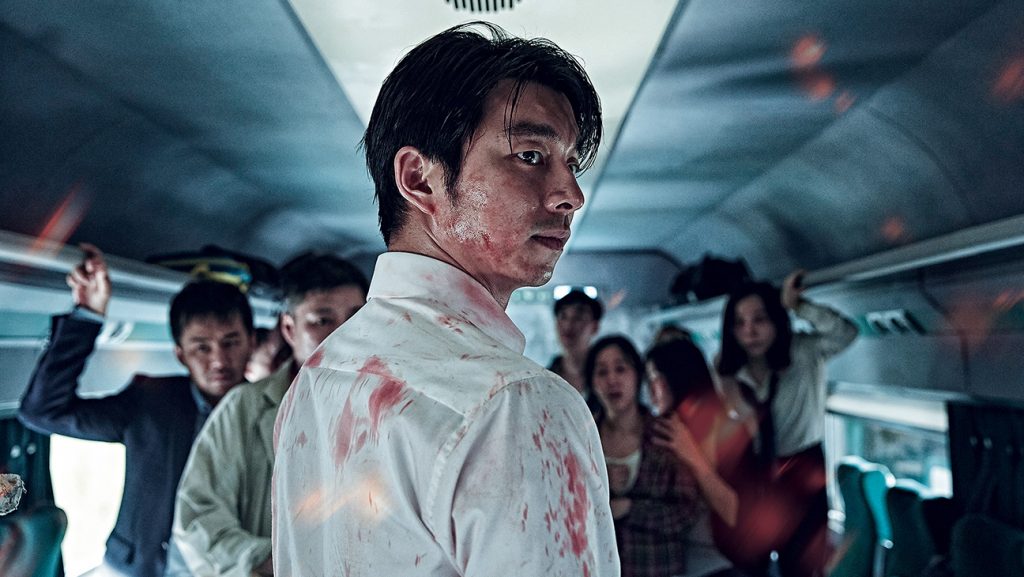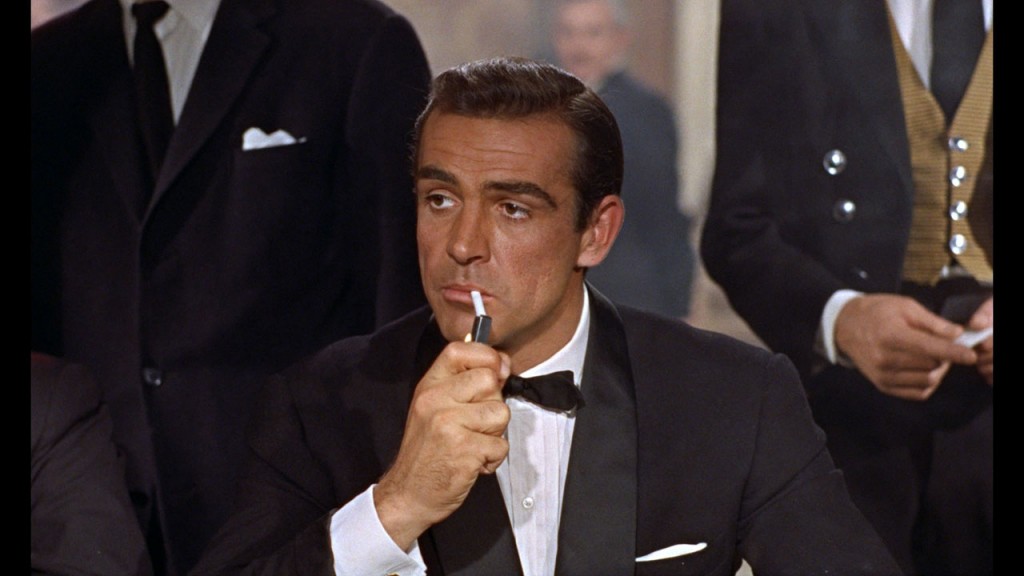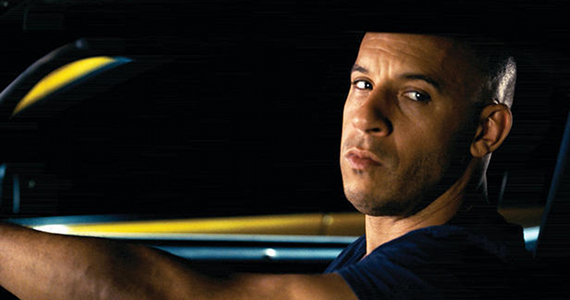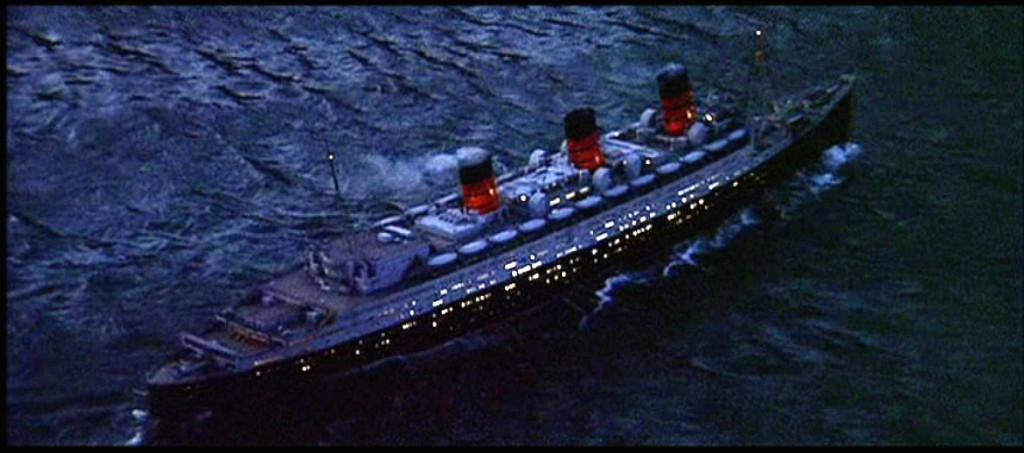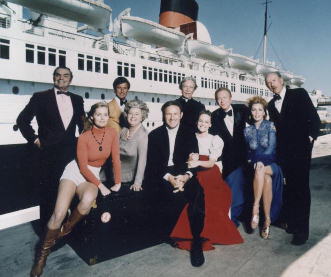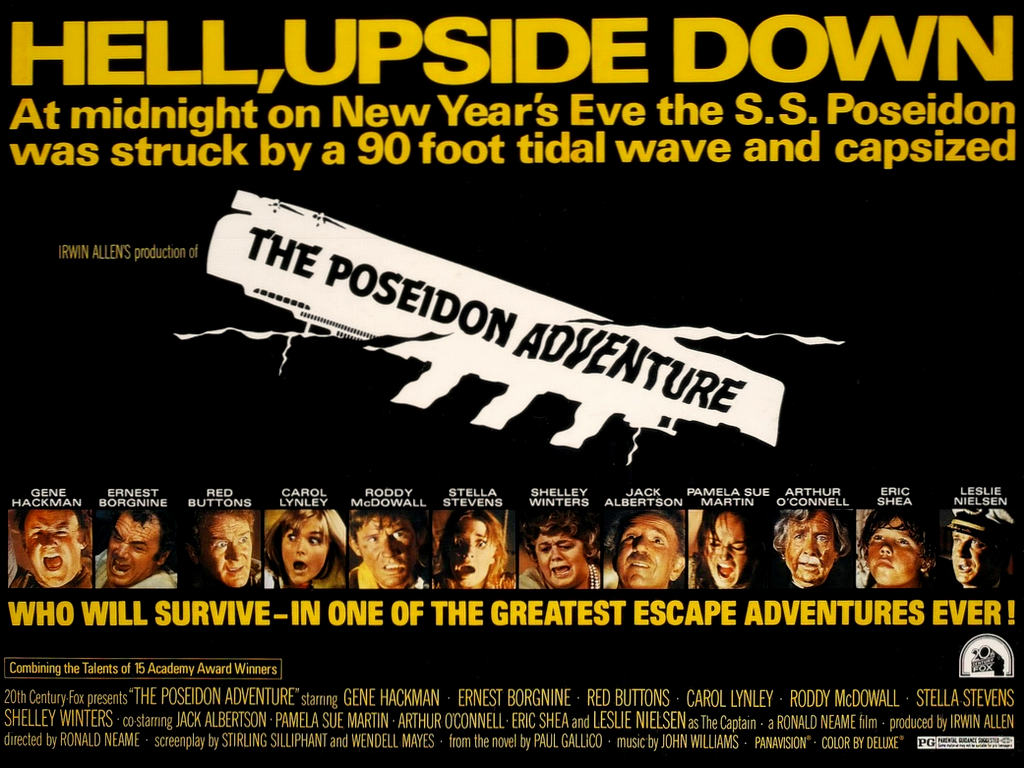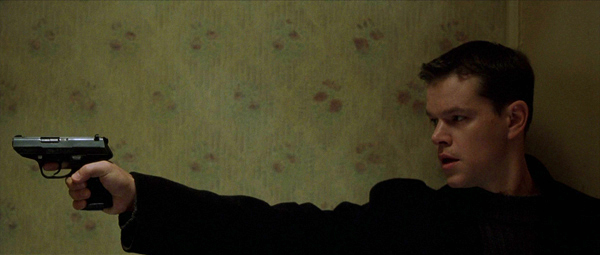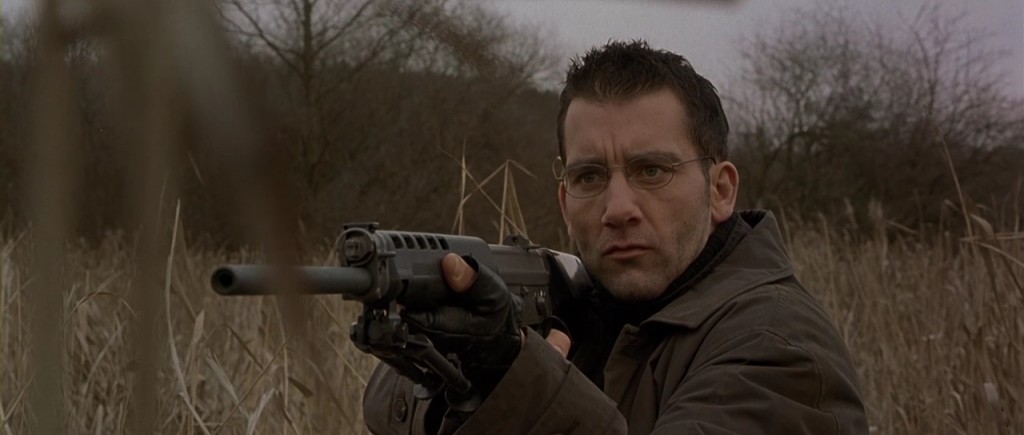The Beekeeper
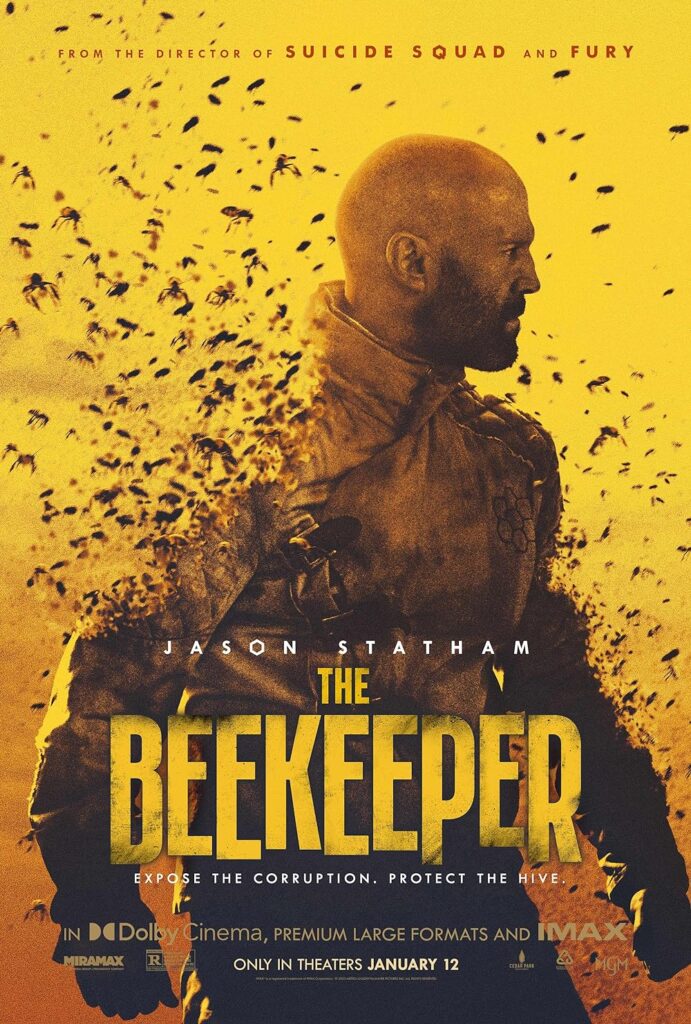 When I was in my 20s I managed a movie theater on 59th St in New York, the Manhattan Twin. It was part part of the City Cinemas chain, which was a clutch of theaters that had been built on the ruins of Dan Rugoff’s bankrupt Cinema 5 theater chain. City Cinemas’ flagship theater, Cinema I, was right around the corner from the Manhattan Twin, but the difference in programming could not have been different. Cinema I would show a movie like Kiss of the Spider Woman or And the Ship Sails On, while the Manhattan Twin would show movies like Police Academy or Splash. As I used to put it, “Cinema I is across the street from Bloomingdale’s, the Manhattan Twin is across the street from a deli called Meat Land.”
When I was in my 20s I managed a movie theater on 59th St in New York, the Manhattan Twin. It was part part of the City Cinemas chain, which was a clutch of theaters that had been built on the ruins of Dan Rugoff’s bankrupt Cinema 5 theater chain. City Cinemas’ flagship theater, Cinema I, was right around the corner from the Manhattan Twin, but the difference in programming could not have been different. Cinema I would show a movie like Kiss of the Spider Woman or And the Ship Sails On, while the Manhattan Twin would show movies like Police Academy or Splash. As I used to put it, “Cinema I is across the street from Bloomingdale’s, the Manhattan Twin is across the street from a deli called Meat Land.”
In the fall of 1984, the Manhattan Twin booked a Charles Bronson vehicle titled The Evil That Men Do. As the manager, it was my responsibility to watch every movie we showed, to make sure the reels were in the right order and the print was presentable. I watched The Evil That Men Do and I didn’t like it. I found it unnecessarily crass, vulgar and cheap, and its violence overly harsh and brutal. I expected it to die a quick death and be replaced on our screen by, maybe, the delightful Steve Martin/Lily Tomlin comedy All of Me.
But The Evil That Men Do didn’t bomb. It wasn’t a huge hit, but it didn’t bomb. The theater was never full, the theater was never even half-full, but the audience came, and it kept showing up. Every time we thought the box office for the picture was going to trail off, it would rally again, never enough to be a smash hit, but enough to keep it in the theater for another week. The movie had legs. Stumpy legs, to be sure, but solid, and they kept moving forward every week. The audience never dropped off, it just remained static, week after week. It opened on September 21 and we were still showing it on Thanksgiving, which turned out to be twice the movie-going day anyone in the theater chain expected it to be. We were short-staffed, because it was Thanksgiving, and we were besieged by hundreds of people all day on our two screens.
I remember, on that long Thanksgiving Day, wondering “Who are these people?” The Evil That Men Do was, at that point, in its ninth week, and here we were, packing them in on a day when everyone should have been at home with their families.
So I watched them as they came out of the movie. They were all older men, men in their late 40s, 50s, early 60s. They never had dates, they always came alone. They were paunchy and saggy, their faces lined and their eyes flinty. They were tired, worn, and dyspeptic. They were working class, dressed in windbreakers and overcoats, with sweaters or sweatshirts over button-down shirts. They were the kind of men I had never thought about for a single second of my life, cab drivers and factory workers, middle-managers and plumbers, shoe salesmen and tradesmen. And they all wanted to see Charles Bronson in The Evil That Men Do.
I don’t remember a single second of The Evil That Men Do, but I can tell you, without looking, what it’s about: a middle-aged assassin is brought out of retirement because a close friend of his has been killed, and he will stop at nothing to murder all the people responsible.
And I thought, well, I don’t like that movie, and I don’t buy that kind of macho bullshit fantasy, but look at the faces of these men walking out of the theater. They love the movie, and they have found something of value in it, and it has made them feel, for a couple of hours, less alone in the world.
Like the Grinch on Christmas Eve, my heart grew three sizes that day, and I became much more forgiving of movies I don’t like. I realized that, while they were not to my taste, that that was okay, because not everything has to be made for me. What is required is that a movie find its audience and give it what it wants.
After that, I started to watch everything we showed, in the theater, with an audience. It didn’t matter what it was, a teen comedy, a romance, a horror movie, if an audience responded to it I wanted to know why. I tossed aside whatever personal preferences I had and paid attention to what the audience was looking for, and spent a lot of time wondering why one movie bombed and another one flourished. I now remember movies from that era as much for their audience’s reactions as for the movies themselves.
The decades flew by, but every once in a while I would stop and think about The Evil That Men Do and the mysterious audience of middle-aged working-class men who turned up, week after week, to watch it, and the bond that a movie creates with its audience, regardless of the quality of the product.
I realized the men who came to see The Evil That Men Do probably felt as though they had all followed the rules set down by the Truman administration: get a job, get married, have kids, buy a house, pay your mortgage, die happy. But life hadn’t turned out that way for them. They all felt shortchanged. They all felt like they had been forgotten. Their kids had moved out, their wives perhaps as well, and they didn’t have a house, they were renting now, and their dwellings were getting smaller and smaller as Reagan’s economy handed more and more of their savings over to plutocrats. And every day, more was being taken from them, just through the process of getting old.
That audience needed a hero. They needed to see a man who was both incorruptible and indestructible, highly intelligent and and expert in both strategic and tactical maneuvers. They wanted to see a man of the highest possible moral character, a man who had been around the world and seen a lot of trouble but who now wants only to live his life in peace, who wants only the leisure to putter around his country house and engage in some kind of hobby — stamp collecting, maybe, or refurbishing a vintage sports car, or building elaborate dioramas of Civil War battles. This man would only want a quiet life where they were free to contemplate the endless tapestry of life’s mysteries, but he would also, secretly, be an unstoppable killing machine who is prepared to exact bloody revenge when he is pushed too far. This hero would talk as little as possible, his primary expression would be through motion, and any dialogue he had should be honed and polished into monosyllabic gems.
That audience was prepared to forgive a movie any amount of ludicrous plot, any number of outrageous contrivances, any display of improbable physics, as long as their stoic, had-enough hero hit his beats, dispensed unadulterated justice, and lived to fight another day.
Anyway, here we are, and it turns out I’m now one of those guys, and I thoroughly enjoyed the completely ridiculous The Beekeeper.
Spielberg
My new volume of analysis, the double-sized, sixteen-movie volume on the films of Steven Spielberg, is now available for humans with eyeballs to read at Amazon.
Amazing at it sounds, Spielberg remains one of the most misunderstood, and underrated, directors of our time. If you’ve ever dismissed Spielberg, or thought “What’s the big deal?” or hated him for his whatever you hate him for, this volume will shed new light on his work. And if you’ve always liked his work but didn’t know why, this book will also shed new light on his work. And if you’ve always loved his work, this book will still shed new light on his work. Guaranteed.
Train to Busan
Hey, if you’re looking for a great horror movie to watch this Halloween, you really can’t do better than Yeon Sang-ho’s fantastic, slam-bang Korean zombie movie Train to Busan. Breathlessly paced, fiendishly inventive, wonderfully human and deeply affecting, Train to Busan puts a clutch of ordinary folk on a passenger train at the moment the world ends. Just when you think there’s nothing left to be done with the concept of “zombies on a train,” the director comes up with five or ten more ideas, each one more devilish than the last. Terrific filmmaking and automatically one of the greatest horror movies ever made. On Netflix.
Batman on the Big Screen
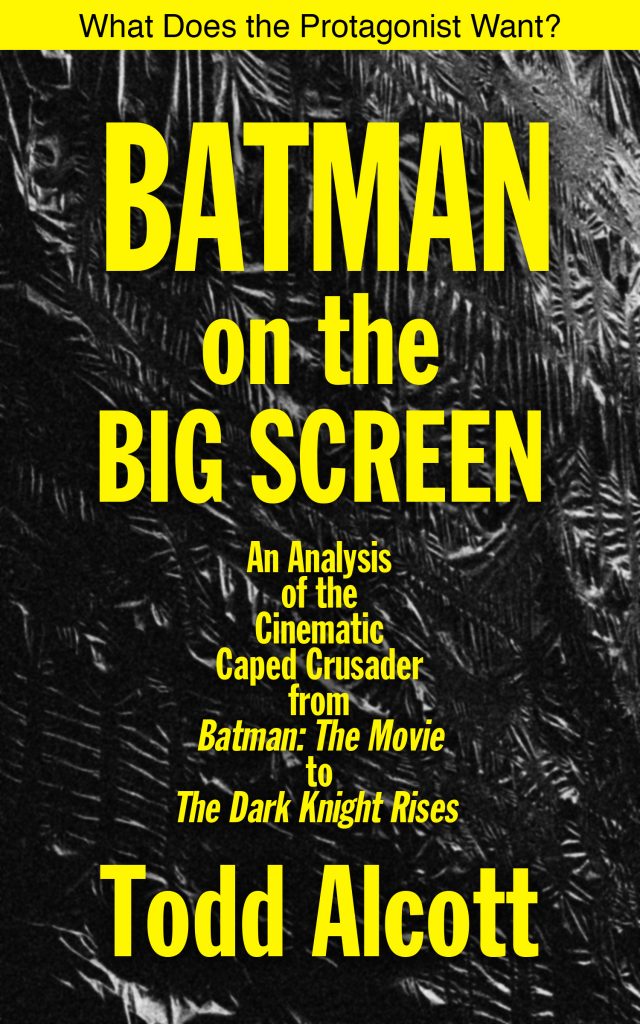
Batman on the Big Screen, a volume collecting everything I’ve written about the Caped Crusader, is now for sale at Amazon. It’s the first in what will be a long line of volumes under the What Does The Protagonist Want? banner. Having just finished editing it, I can tell you, it’s still highly addictive reading!
Some thoughts on Furious 7
In 1962, Sean Connery starred as James Bond in Dr. No. This was not the first appearance of James Bond. The character had been around for nine years before that, in the novels by Ian Fleming of course, but had also showed up in both a TV adaptation and, of all things, a newspaper comic. But after Dr. No, Bond was everywhere. Connery’s performance lodged in people’s minds and by the time Goldfinger came out the character had become an immortal icon, a symbol.
But a symbol of what? As a child, I had no idea what the heck James Bond was “about.” The movies seemed to drag. They weren’t thrillers or dramas, they were light-comic pageants, devoid of suspense or surprise. Nothing of import seemed to happen in them. It wasn’t until later that I identified James Bond as a symptom of cold-war “lifestyle marketing,” related more closely to Playboy and Esquire than the espionage thrillers they purported to be. Bond was a hollow man, a collection of attitudes. A tuxedo, a gun, cool toys and a limitless supply of ladies.
Favorite screenplays: The Poseidon Adventure part 3
It’s New Year’s Eve, approaching midnight, on this ship that is upside-down but nobody realizes it yet. We check in with all our main characters once again before disaster strikes. The working-class Rogos fight, then kiss and make up, the waif Nonnie sings, the lonely Mr. Martin (surrounded by young ladies) takes his vitamins, the Rosens kibitz, The Captain relaxes, Acres pours champaign, Rev Scott waxes hippy, Susan lusts for Rev Scott, and little Robin interrogates the Purser, who will soon become a pivotal character. The Purser, explaining himself to Robin, is the ship’s manager — not the owner (the businessman), not the captain (the leader) but the manager, the middle-man of song and story. Now that we’ve met everyone and examined their strategies for dealing with the chaos of a world upside-down, the world goes ahead and actually turns upside-down. Read more
Favorite screenplays: The Poseidon Adventure part 2
So, let’s remember, the metaphor in play in The Poseidon Adventure is “the world is upside-down.” The important thing to remember about this metaphor is that it’s already in play before the ship turns upside-down. That is, the world is already upside-down for the characters on the Poseidon, the tidal wave only serves to make the metaphor literal.
Favorite screenplays: The Poseidon Adventure part 1
The Poseidon Adventure was the first new, “grown up” movie I ever saw. I think the last movie I had seen previous to it was The Aristocats. People generally feel The Poseidon Adventure to be ham-fisted, stale and clunky, but in the winter of 1973 it was pretty mind-blowing, especially to an 11-year-old boy, and it changed the way I felt about movies forever. I would never be happy with Herbie Rides Again or The Apple Dumpling Gang after I had seen mass death and gripping adventure in the passageways of a capsized ocean liner. Read more
Favorite screenplays: The Bourne Identity part 8
Jason Bourne has killed his brother, The Professor, in self-defense. The Professor was sent to kill Jason at the behest of Conklin, who is both Jason’s and The Professor’s father. Conklin has pitted brother against brother to save face in the eyes of his own father Abbott. Abbott wants Jason dead and the whole Treadstone project to just kind of go away so that he can save face when reporting his budget to a Congressional committee. And so a political aspect of The Bourne Identity presents itself: an older, powerful white man feels discomfort about covering his ass, and that discomfort sends ripples down through the chain of power that results in young men, spiritual brothers, killing each other in a foreign land. The king’s discomfort results in the serf’s murder.
Favorite screenplays: The Bourne Identity part 7
Act III begins as Act II did — with an explosion of activity from Conklin back at CIA headquarters. Here, he barks orders at all his kids about how to pinpoint Bourne, crosscut with him reassuring his father-figure Abbott that Bourne will be caught and killed. Abbott, we learn, is upset about Bourne solely because of a budget meeting he has coming up with his Congressional overseers and Treadstone looks to be a big fat failure. So we see that, as is often the case in familial disputes, it all comes down to money.
